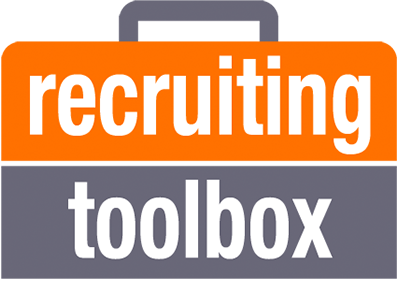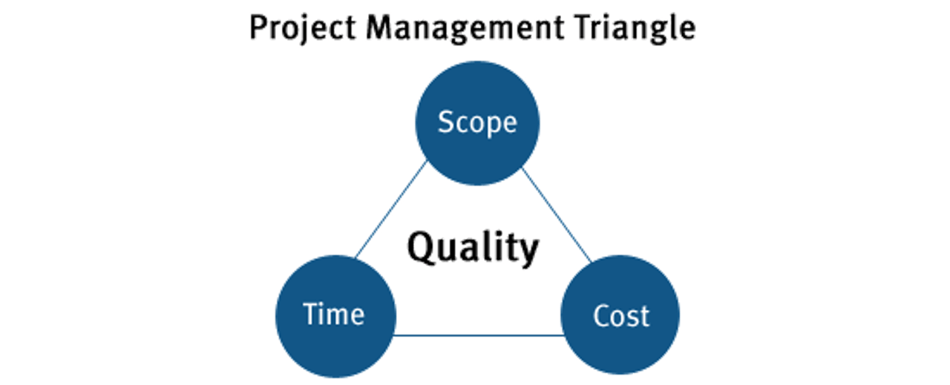Recruiting Toolbox Blog
Recruiting/Talent Project Management in the Real World
Project Management in the Real World
A lot of recruitment leaders we work with are about to launch big initiatives. They’re evaluating new systems, pulling together cross-functional teams to improve their processes, focusing on new or better metrics, or looking for ways to help their hiring managers hire better. All project-y stuff, and the good news is that they all have the budget they need to deliver what’s needed, and they’re really well resourced, with a dedicated project manager and team that is freed up to really focus on the heavy lifting required to create something great.
Right? I mean, talent is a company’s No. 1 priority, so once you make a good business case, you’ll get everything you need to execute flawlessly, right?
Wrong.
Well, while some do have the resources they need, most don’t. In fact, most are living in a world of serious constraints and competing priorities. Getting project work done — while also getting reqs filled with quality people, improving time to hire, creating a great candidate experience, feeding the ATS monster, dealing with fires, etc — is hard. In fact, perfectionists and people who are nuts about never dropping the ball will have at least one meltdown a month if they’re working in a typical recruitment department. I used to have weekly meltdowns from mid-1998 through 1999. Good times.
Welcome to the Real World: Making Tradeoffs
Savvy recruitment leaders are great at finding a way to get it done. They listen to the business, prioritize the competing priorities, and focus on the stuff that really matters. They find a way to say yes to the business, while still keeping the train running. But, they are also masters of the quality/speed/cost tradeoff conversation.
You know this: If you want quality (perfection) and speed, it’s going to cost you a lot more than what we planned. If you want high quality and cheap, it’ll take forever (and frankly, won’t likely survive against new competing priorities that will pop up a month from now). If you want it cheap and fast, well, it will likely suck (you won’t get what you asked for, what you need, and what’s up to my own standards).
If you play the role of project manager, and you’re not skilled in having this type of tradeoff conversation, you will likely hate your job over time, and maybe even implode. And that also sucks … for you, your team, your business leaders, and your candidates. The world needs good recruiting pros like you.
Making Decisions
Good inputs lead to good outputs. So getting the right information and context before you make a big decision is critical. But this is where reality gets in the way of ideal. We often don’t have all of the stakeholder feedback we want and need to make a wonderfully well-educated, totally defensible decision. We don’t often have enough past data (ROI, metrics) to predict the future. We often don’t even know how receptive our end-users would be to some of our planned deliverables — will it really solve the problem we think it will solve?
Some of us say screw it, and just dive into the deep end, not knowing what we’ll find — you know, the thrill-seeker types. And then there are the types who won’t make any decision without having 100% confidence that they’re making the right decision. They need a lot of validation; maybe too much buy-in and data. And then most of us are somewhere in between.
So, here’s the deal. There is no pause button in HR.
Things often move whether we’re ready or not, with or without us. And — this is important — not deciding is deciding. Delaying decisions in a world where your deadline is relatively immovable (i.e. we need 20 new sales reps to launch this new market by March 1, or else we won’t hit our sales goal for 2015) will force you to make decisions … sometimes, bad decisions that impact quality, or cost you money you don’t have. (I lead an annual recruiting leadership workshop, and when we debrief on group scenarios related to making tradeoff and big decisions, we usually say something like “People will rarely remember if you blew your budget a year from now — they’ll remember whether you delivered quality, on time, though.” I think that’s almost always the case.).
When leading projects, we’re required — sometimes even forced — to make decisions early and often. I recall advice I got from a project management guru I worked with a few years ago. He said, “We can’t afford to have more meetings, to delay this any longer. If it’s generally correct, and not specifically wrong, we go with what we have.”
At the time I heard that, I was relieved … mostly because it meant we were actually going to get something done in this meeting, and not make this meeting (like many before it) about planning our agenda for our next meeting, or talking about talking about stuff (that’s not a typo … sometimes we have meetings where we actually talk about future things we need to talk about for 30 minutes!). Meetings should be about decisions, and this guy was giving us permission to decide, to move ahead. Thank you.
Generally Correct, Not Specifically Wrong
I’ve held onto this “is-this-generally-correct, not-specifically-wrong?” way of thinking when it feels like my “committee” is stuck or being too risk adverse. I won’t “let” the group make a decision we know is specifically wrong. For example, if we know for sure that a system we’re looking at doesn’t comply with data privacy laws in Europe, then we won’t look past that and launch it in Germany. That would be specifically wrong. Bad decision. Don’t do it. Come up with another solution.
If I know that we’re not specifically wrong, but we are generally correct, I’ll encourage us to move forward. For example, let’s say we know that we’ll need to get this new hiring manager training launched by April 1 to meet the big hiring ramp planned for June. We also know that there’s a big reorg planned in Operations for mid-March (with a new leader, who may want to change some of the competencies we focus on in the training, or adjust the operations interviewing process).
We have two options. We could hit the pause button, and wait until after the re-org to make sure we’re 100% aligned with the new ops leader. But if we know the hiring ramp in June is real, and we know that we’ve done due diligence to validate the need for training and the competencies with existing ops leaders, I’d push to keep this train movin’ forward. We don’t have any evidence to suggest that what we’re doing is specifically wrong. The risk adverse participants will want to delay, but pausing will almost guarantee we miss our target delivery date. Yes, there’s a chance the new leader could have a different vision, and force us into a course correction. But the greater risk — I think — is to just wait and see, which would force us into a situation where we no longer have time to do quality work, or no longer have budget to deliver something we’d be proud of.
Going from Good to Great
Good project managers in recruiting can scope out a project really well, get the team aligned, build a good plan, track milestones (progress vs plan), and deliver on time. Great project managers can do all of that, plus drive decisions in this world I’ve described — lack of resources, limited budget and time, stakeholders disagree or don’t engage the way you need them to, good data isn’t available, reorgs happen, and firefighting screws up your schedule. Getting great at having the tradeoff discussion (quality/speed/cost), acknowledging that not deciding is deciding, and — especially in the early phases of a project — focusing on progress, not perfection (generally correct, not specifically wrong) is key to leading projects to success.
What’s key to project success for you, in your organization? What causes your projects to implode? What do you see the best project managers in recruitment do differently? Please share.
John Vlastelica, Managing Director, Recruiting Toolbox, originally wrote this and shared it on ERE.

